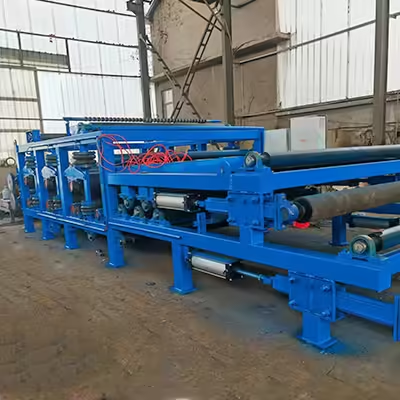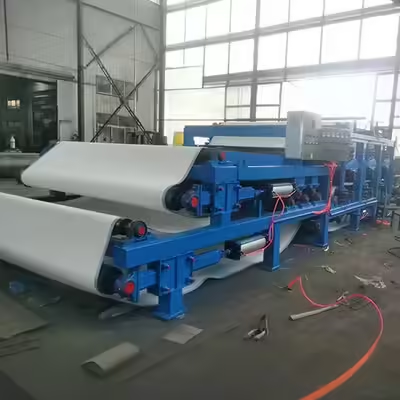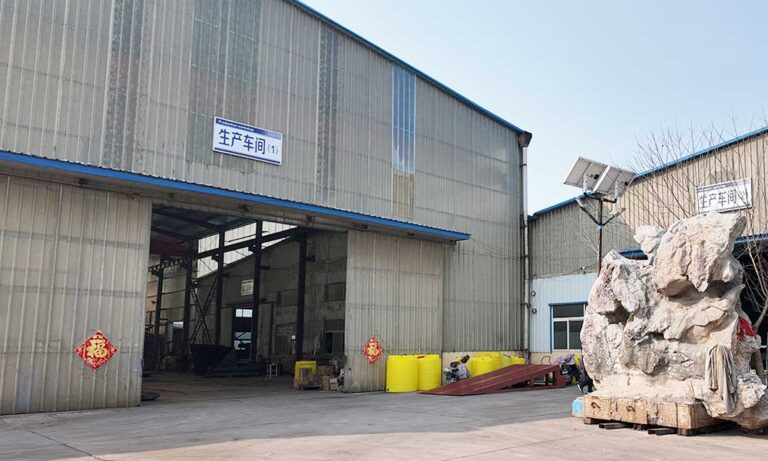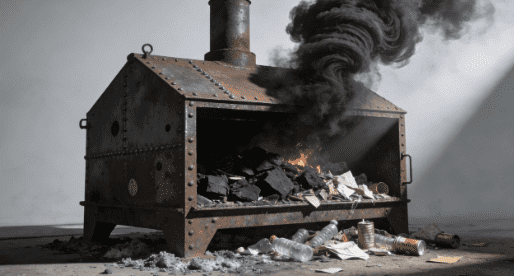Table of Contents
Introduction
When it comes to dewatering sludge in various industrial applications, the choice of equipment plays a significant role in operational efficiency, cost-effectiveness, and environmental sustainability. Among the most widely used dewatering technologies are the sludge filter press and the centrifuge. Each of these systems has its own set of benefits, and their suitability depends on specific operational needs. In this blog, we will explore the key differences between these two technologies, analyze their advantages, and help you determine which one is more effective for your application.
What is a Sludge Filter Press?


A sludge filter press is a highly effective mechanical dewatering device used to separate solid particles from liquids, creating a dry, solid sludge cake that is easy to handle, store, and dispose of. It operates by using a filtration process where sludge is pressed between a series of filter plates, applying both gravity and mechanical pressure to extract water, thereby reducing the volume of sludge. The dewatering process helps lower disposal costs, minimize environmental impact, and improve sludge handling.
The design of the sludge filter press allows for the removal of excess moisture from a variety of sludge types, including those generated in mining, industrial wastewater treatment, and food processing plants. It is especially beneficial for operations where large quantities of sludge need to be treated in an efficient, cost-effective manner.
Key Features:
Gravity Filtration: In the initial stage of the process, gravity plays a key role in removing the free water content from the sludge. The sludge is spread evenly across the filter plates, and gravity allows the excess water to drain off, reducing the volume of the sludge before it undergoes pressure filtration.
Pressure Filtration: After gravity filtration, the sludge enters the pressing phase. A series of rollers apply increasing amounts of pressure to further extract water from the sludge. This pressure-driven process forces the remaining liquid to pass through the filter plates, leaving behind a dense sludge cake with a significantly reduced moisture content.
Versatile Applications: The sludge filter press is a versatile machine, capable of handling different types of sludge. It is commonly used in industries such as:
- Mining: For dewatering mining tailings, reducing waste volume, and recovering valuable water.
- Wastewater Treatment: In municipal and industrial plants for dewatering sewage sludge and other wastewater by-products.
- Food Processing: To remove excess water from organic waste generated during food production.
- Chemical Industry: For the separation of chemicals from sludges produced in various processes, such as during the manufacture of chemicals and pharmaceuticals.
Reduced Environmental Impact: By efficiently removing excess water, the sludge filter press reduces the environmental footprint of sludge disposal. The resulting dry sludge cake is easier to handle, transport, and dispose of, which is particularly important in regions with strict waste management regulations.
High Efficiency: The sludge filter press is known for its high dewatering efficiency, making it an ideal choice for large-scale operations. The ability to remove significant amounts of water means that companies can save on disposal costs and reduce the amount of sludge requiring treatment.
Customizable Configurations: Depending on the needs of the operation, sludge filter presses can be tailored to meet specific requirements. Different sizes, filtration capacities, and pressure settings can be selected to optimize the dewatering process for different sludge types.
What is a Centrifuge?
A centrifuge is a type of machine that uses centrifugal force to separate solid particles from liquids in a mixture. It is commonly used in dewatering processes where sludge or slurry needs to be treated to remove water content. The centrifuge operates by spinning the sludge at very high speeds, causing the heavier solid particles to be forced outward toward the sides of the centrifuge, while the lighter liquid moves toward the center, allowing the two components to be easily separated.
Centrifuges are widely used in various industries, particularly in municipal wastewater treatment plants, as well as in applications where a high degree of water removal is needed from sludge or slurry. The centrifugal process is highly efficient, providing faster processing times compared to some other methods, such as filter presses.
Key Features:
Centrifugal Force: The centrifuge operates by rapidly spinning the sludge, generating high centrifugal force that causes the solid particles to separate from the liquid. The solids are pushed toward the walls of the centrifuge, while the liquids are separated and extracted.
Efficient Water Removal: This method of dewatering is especially effective for sludge with a low solids content or high water content. It helps extract water quickly and efficiently, especially in situations where high-speed processing is required.
High-Speed Operation: Centrifuges are designed to work at high rotational speeds, which enables them to remove moisture rapidly from the sludge. This makes them suitable for processes that require quick turnaround times, such as municipal wastewater treatment.
Compact Design: Unlike some other dewatering technologies, such as filter presses, centrifuges tend to have a smaller footprint. This makes them more suitable for environments where space is limited or where high volumes of sludge need to be processed continuously.
Continuous Operation: One of the main advantages of a centrifuge is its ability to operate continuously, which makes it ideal for large-scale, ongoing sludge treatment processes. This continuous operation reduces downtime and increases overall productivity in sludge management.
Widely Used in Municipal Applications: Centrifuges are particularly favored in municipal wastewater treatment plants. These facilities handle large volumes of sludge on a daily basis, and the centrifuge’s ability to operate continuously and at high speeds makes it an ideal choice for handling municipal sludge efficiently.
Sludge Filter Press vs. Centrifuge: A Direct Comparison
To provide a clearer understanding, let’s compare both technologies based on key performance factors such as operational efficiency, cost, water removal capabilities, and maintenance requirements.
| Feature | Sludge Filter Press | Centrifuge |
|---|---|---|
| Water Removal Efficiency | Excellent, produces a low-moisture cake | Good, suitable for low solids content |
| Operational Cost | Relatively low cost of operation | Higher energy and maintenance costs |
| Maintenance | Low to moderate maintenance | Requires regular maintenance and skilled operation |
| Energy Consumption | Lower energy consumption | High energy consumption due to high-speed operation |
| Suitable For | High solids sludge, mining, food processing | Low solids sludge, municipal wastewater |
| Output Type | Solid cake for easy disposal or reuse | Semi-dried sludge, often requires further treatment |
| Space Requirement | Requires more floor space | Compact, easier to integrate in small spaces |
| Speed | Slower dewatering process | Faster dewatering process |
Advantages of Sludge Filter Press
- Cost-Effective: The sludge filter press is relatively inexpensive to operate, making it an ideal choice for industries looking to reduce operational costs.
- High Dewatering Efficiency: It excels in handling high solids content and provides efficient water removal, which is critical for applications like mining and food processing.
- Easy Disposal: The final output is a dry, compact sludge cake that is easy to handle, transport, and dispose of, reducing the need for further treatment.
- Longer Equipment Lifespan: The equipment is durable and can serve for many years with proper maintenance.
Advantages of Centrifuge
- Faster Processing: The centrifuge is known for its quick dewatering capabilities, making it a great option for industries requiring rapid processing times.
- Compact Design: Centrifuges take up less space compared to sludge filter presses, making them ideal for smaller installations.
- High Efficiency for Low Solids Content: Centrifuges are particularly effective for handling sludge with low solids content and high water content.
- Continuous Operation: Centrifuges can operate continuously, making them more suitable for high-volume sludge treatment.
Which One is More Effective for Your Needs?

The effectiveness of a sludge filter press or centrifuge largely depends on the specific requirements of your operation. If your primary concern is handling high-solids content sludge and minimizing disposal costs, the sludge filter press is the better option. On the other hand, if you are dealing with sludge that has a low solids content and need faster processing, a centrifuge would be more suitable.
For industries like mining, where high-volume sludge with substantial solids content is generated, a sludge filter press is an ideal solution. On the other hand, municipal wastewater treatment plants with more diluted sludge may benefit from the speed and compact design of a centrifuge.
Conclusion
Both the sludge filter press and centrifuge are essential tools in sludge dewatering processes, and each offers unique advantages for different applications. Choosing the right equipment depends on the characteristics of the sludge you’re dealing with, as well as your operational needs. The sludge filter press provides an excellent solution for high-solids content sludge, while the centrifuge is ideal for lower solids content and faster processing times. By evaluating your specific needs, you can determine which machine best suits your goals for improved efficiency and reduced operational costs.
FAQ
- What type of sludge is best suited for a sludge filter press?
A sludge filter press is best suited for high-solids content sludge, such as mining sludge or thick wastewater sludge. - Can a centrifuge handle high-solids content sludge?
While a centrifuge can process high-solids sludge, it is more effective for lower-solids sludge due to its high-speed operation. - Is the sludge filter press more cost-effective than a centrifuge?
Yes, the sludge filter press is generally more cost-effective to operate and maintain compared to a centrifuge. - How long does a sludge filter press typically last?
With proper maintenance, a sludge filter press can last for many years, providing long-term reliability. - Which machine is better for municipal wastewater treatment?
A centrifuge is often preferred for municipal wastewater treatment due to its speed and effectiveness with low solids content sludge.
Contact Us
At Shandong Lushun Environmental Technology Co., Ltd., we specialize in providing high-quality sludge filter press and related environmental protection equipment. If you need expert advice on which equipment is best suited for your application, don’t hesitate to contact us. Our team is ready to assist you with customized solutions and technical support.
Let’s Stay Connected! 🌍
Thank you for reading!
If you found this guide helpful or have questions about filter press machines, I’d love to connect and hear your thoughts.
📘 Follow me on Facebook for expert insights, behind-the-scenes updates, and real conversations with our global community.
Let’s continue exploring, learning, and growing—together! 🚀






